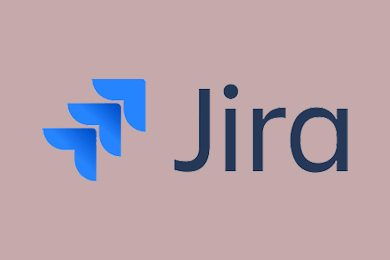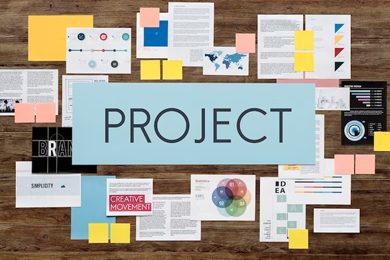This plan includes
- Limited free courses access
- Play & Pause Course Videos
- Video Recorded Lectures
- Learn on Mobile/PC/Tablet
- Quizzes and Real Projects
- Lifetime Course Certificate
- Email & Chat Support
What you'll learn?
- FOUNDATIONS OF THEORY OF CHANGE: Understand the core concepts and principles of Theory of Change and its relevance in relief, humanitarian, and development work. Learn how to develop ToC frameworks to articulate pathways of change, set clear objectives, and align interventions with project goals.
- PRACTICAL APPLICATION OF TOC: Explore real-world case studies and best practices of ToC applications in relief, humanitarian, and development projects. Gain insights into effective strategies for stakeholder engagement, data collection, monitoring, evaluation, and adaptive management.
- INTEGRATION INTO PROJECT PLANNING: Learn how to integrate ToC principles into every stage of the project cycle, from needs assessment and program design to implementation and evaluation.
- ENHANCED MONITORING AND EVALUATION: Discover how ToC enhances monitoring and evaluation practices by providing a framework for tracking progress, measuring outcomes, and learning from experience. Explore tools and techniques for designing M&E frameworks based on ToC principles and using data to drive decision-making.
- PROMOTING LEARNING AND COLLABORATION: Foster a culture of learning, reflection, and collaboration within your organization or project team.
Course Overview
- Clarify project purpose and intended impact
- Align efforts with desired outcomes
- Test and validate underlying assumptions to ensure project viability
- Steer projects more effectively towards desired outcomes
- FOUNDATIONS OF THEORY OF CHANGE: Understand the core concepts and principles of Theory of Change and its relevance in relief, humanitarian, and development work. Learn how to develop ToC frameworks to articulate pathways of change, set clear objectives, and align interventions with project goals.
- PRACTICAL APPLICATION OF TOC: Explore real-world case studies and best practices of ToC applications in relief, humanitarian, and development projects. Gain insights into effective strategies for stakeholder engagement, data collection, monitoring, evaluation, and adaptive management.
- INTEGRATION INTO PROJECT PLANNING: Learn how to integrate ToC principles into every stage of the project cycle, from needs assessment and program design to implementation and evaluation.
- ENHANCED MONITORING AND EVALUATION: Discover how ToC enhances monitoring and evaluation practices by providing a framework for tracking progress, measuring outcomes, and learning from experience. Explore tools and techniques for designing M&E frameworks based on ToC principles and using data to drive decision-making.
- PROMOTING LEARNING AND COLLABORATION: Foster a culture of learning, reflection, and collaboration within your organization or project team.
Pre-requisites
Target Audience
- Staff of relief, humanitarian, and development projects
- People working in advocacy and social projects
Curriculum 32 Lectures 03:19:41
Section 1 : INTRODUCTION TO THEORY OF CHANGE
- Lecture 2 :
- IMPORTANCE OF TOC IN RELIEF HUMANITARIAN AND DEVELOPMENT WORK
- Lecture 3 :
- IMPORTANCE OF RECOGNIZING AND ADDRESSING ASSUMPTIONS IN TOC
- Lecture 4 :
- GOALS OUTCOMES AND IMPACT IN THEORY OF CHANGE
- Lecture 5 :
- QUIZ: INTRODUCTION TO THEORY OF CHANGE
Section 2 : THEORY OF CHANGE IN PRACTICE
- Lecture 1 :
- MAPPING CAUSAL PATHWAYS
- Lecture 2 :
- ASSUMPTIONS IN THEORY OF CHANGE
- Lecture 3 :
- BUILDING PARTNERSHIPS - STAKEHOLDER ENGAGEMENT IN THEORY OF CHANGE DEVELOPMENT
- Lecture 4 :
- PARTNERSHIP CASE STUDY - COMMUNITY RESILIENCE
- Lecture 5 :
- PARTNERSHIP CASE STUDY - SOCIAL INCLUSION
- Lecture 6 :
- INTEGRATING THEORY OF CHANGE INTO PROJECT LOGIC MODELS AND FRAMEWORKS
- Lecture 7 :
- LINKING ACTIVITIES OUTPUTS OUTCOMES AND IMPACTS
- Lecture 8 :
- QUIZ: THEORY OF CHANGE IN PRACTICE
Section 3 : ADDRESSING COMPLEXITY AND CONTEXT-SPECIFIC FACTORS IN THEORY OF CHANGE
- Lecture 1 :
- COMPLEXITY AND CONTEXT SPECIFIC FACTORS IN PROJECT PLANNING
- Lecture 2 :
- IMPORTANCE OF ADAPTABILITY AND FLEXIBILITY IN THEORY OF CHANGE
- Lecture 3 :
- INCORPORATING PARTICIPATORY APPROACHES
- Lecture 4 :
- UTILIZING SYSTEMS THINKING IN TOC
- Lecture 5 :
- ADDRESSING POWER DYNAMICS
- Lecture 6 :
- IMPORTANCE OF CONTEXTUAL ANALYSIS
- Lecture 7 :
- BUILDING PARTNERSHIPS AND COLLABORATION
- Lecture 8 :
- MONITORING AND EVALUATION FOR LEARNING
- Lecture 9 :
- ADDRESSING COMPLEXITY - CASE STUDY - DISASTER RESPONSE
- Lecture 10 :
- ADDRESSING COMPLEXITY - CASE STUDY - HUMANITARIAN ASSISTANCE
- Lecture 11 :
- ADDRESSING COMPLEXITY - CASE STUDY - AGRICULTURAL DEVELOPMENT
- Lecture 12 :
- QUIZ: ADDRESSING COMPLEXITY AND CONTEXT-SPECIFIC FACTORS IN THEORY OF CHANGE
Section 4 : MONITORING, EVALUATION AND LEARNING, ADAPTIVE MANAGEMENT AND APPLICATION
- Lecture 1 :
- DESIGNING MONITORING EVALUATION AND LEARNING FRAMEWORKS BASED ON THEORY OF CHANG
- Lecture 2 :
- COLLECTING DATA TO MEASURE PROGRESS AND OUTCOMES
- Lecture 3 :
- ADAPTIVE MANAGEMENT AND COURSE CORRECTION IN THEORY OF CHANGE
- Lecture 4 :
- CASE STUDIES AND BEST PRACTICES
- Lecture 5 :
- STEPS TO CREATING A THEORY OF CHANGE
- Lecture 6 :
- LESSONS LEARNED AND NEXT STEPS
- Lecture 7 :
- QUIZ: MONITORING, EVALUATION AND LEARNING, ADAPTIVE MANAGEMENT AND APPLICATION
Our learners work at
Frequently Asked Questions
How do i access the course after purchase?
It's simple. When you sign up, you'll immediately have unlimited viewing of thousands of expert courses, paths to guide your learning, tools to measure your skills and hands-on resources like exercise files. There’s no limit on what you can learn and you can cancel at any time.Are these video based online self-learning courses?
Yes. All of the courses comes with online video based lectures created by certified instructors. Instructors have crafted these courses with a blend of high quality interactive videos, lectures, quizzes & real world projects to give you an indepth knowledge about the topic.Can i play & pause the course as per my convenience?
Yes absolutely & thats one of the advantage of self-paced courses. You can anytime pause or resume the course & come back & forth from one lecture to another lecture, play the videos mulitple times & so on.How do i contact the instructor for any doubts or questions?
Most of these courses have general questions & answers already covered within the course lectures. However, if you need any further help from the instructor, you can use the inbuilt Chat with Instructor option to send a message to an instructor & they will reply you within 24 hours. You can ask as many questions as you want.Do i need a pc to access the course or can i do it on mobile & tablet as well?
Brilliant question? Isn't it? You can access the courses on any device like PC, Mobile, Tablet & even on a smart tv. For mobile & a tablet you can download the Learnfly android or an iOS app. If mobile app is not available in your country, you can access the course directly by visting our website, its fully mobile friendly.Do i get any certificate for the courses?
Yes. Once you complete any course on our platform along with provided assessments by the instructor, you will be eligble to get certificate of course completion.
For how long can i access my course on the platform?
You require an active subscription to access courses on our platform. If your subscription is active, you can access any course on our platform with no restrictions.Is there any free trial?
Currently, we do not offer any free trial.Can i cancel anytime?
Yes, you can cancel your subscription at any time. Your subscription will auto-renew until you cancel, but why would you want to?
Instructor

716 Course Views
1 Courses



 Tech & IT
Tech & IT
 Business
Business
 Coding & Developer
Coding & Developer
 Finance & Accounting
Finance & Accounting
 Academics
Academics
 Office Applications
Office Applications
 Art & Design
Art & Design
 Marketing
Marketing
 Health & Wellness
Health & Wellness
 Sounds & Music
Sounds & Music
 Lifestyle
Lifestyle
 Photography
Photography

















